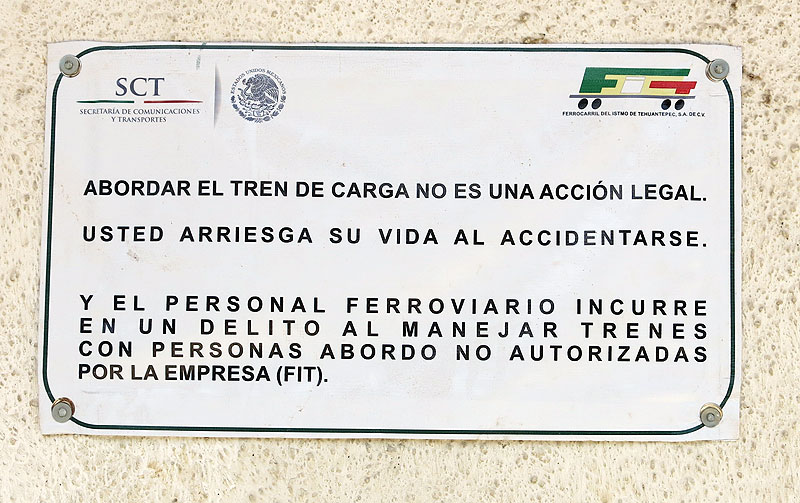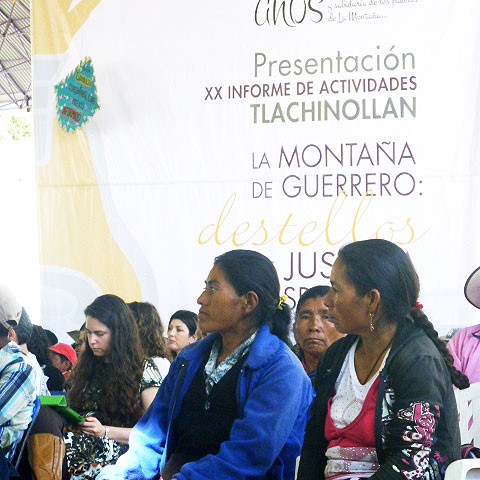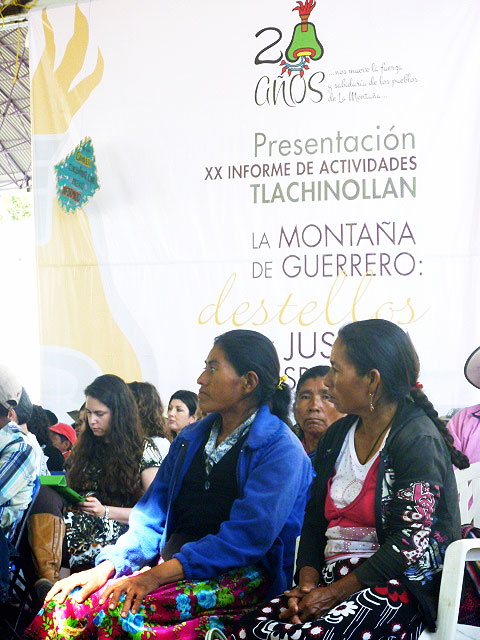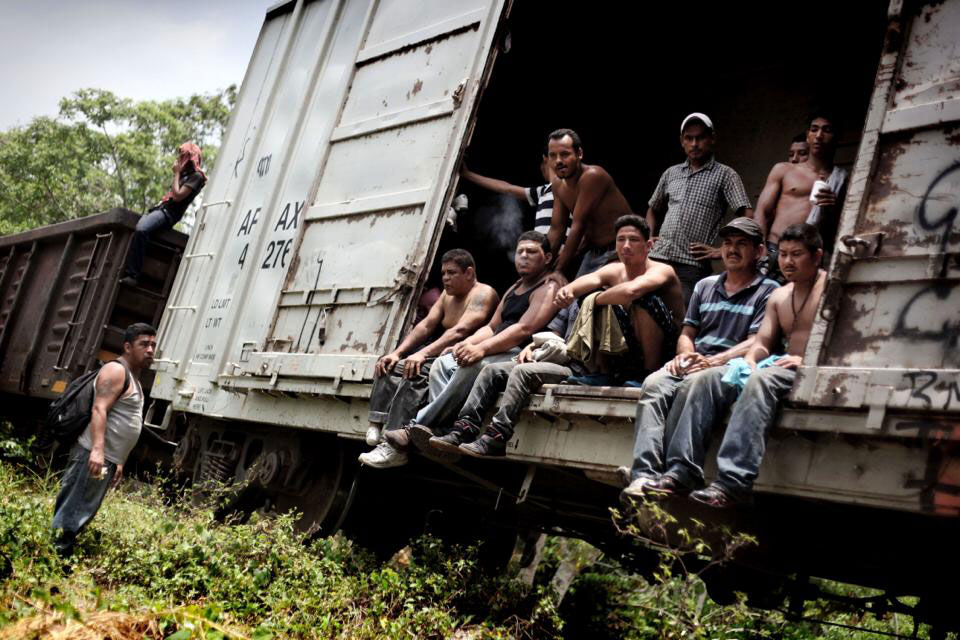
IN FOCUS: Central American Migration to the U.S. – Recognizing refugees on the “infernal route”
05/09/2014SIPAZ ACTIVITIES (From mid-May to mid-August 2014)
05/09/2014On 25 and 26 July, the Tlachinollan Mountain Center for Human Rights celebrated its twentieth anniversary in Comonfort, Guerrero: “In 1994, in a small hotel room where we had only our dreams, Tlachinollan was founded to open the door to justice for the peoples of the Mountain region. Much has happened since that time. To tell the tale of these years is a serious task […]. But if the precise details and vicissitudes of the past twenty years of work escape us, the faces of thoe people whom we have accompanied will leave an indelible mark on our hearts. These are the faces of those who have suffered serious human-rights violations, raised their voices against abuse, and defied impunity.” Such are the opening words of the report entitled “The Mountain of Guerrero: Flashes of justice and hope,” which was presented at the anniversary celebration.
More than 400 representatives from 85 communities of the region attended the event, there to join social movements and organizations in solidarity from Puebla, Nayarit, and Mexico City, among other entities, in addition to representatives from different international institutions and embassies. Participants arrived to participate in the forum “From the communal heart of resistance,” which focused on the commemoration of the struggle of indigenous peoples against discrimination and exclusion in favor of human rights.
Reviewing the successes of the past two decades, an emblematic and encouraging example is that of Inés Fernández Ortega and Valentina Rosendo Cantú, Me’phaa indigenous women who were raped and tortured by soldiers in the Mexican Army in 2002. The two women, present at the anniversary event, struggled for more than ten years to obtain justice, thanks to their own courage and the support provided by Tlachinollan and other organizations, and in 2010, the Inter-American Court on Human Rights (IACHR) released sentences against the Mexican State in their cases. Another example has been that of Bonfilio Rubio Villegas, an indigenous person from the Mountain who was executed extrajudicially by soldiers in 2009: in 2012, the Supreme Court for Justice in the Nation (SCJN) affirmed the motion advanced by his relatives to have the case be tried in civil court. The progress in this case contributed to the federal reform of the Military Justice Code of April 2014, a move that allows cases involving human-rights violations committed by members of the military to be tried in civil jurisdiction.
The anniversary event was also an occasion to denounce the lack of equity and attention given by the government to indigenous peoples. Abel Barrera Hernández, director of Tlachinollan, declared that the “criminalization of indigenous peoples has grown, as have the threats against their lands. There are attempts to plunder by means of mining concessions and the construction of hydroelectric dams. The situation in these communities is tense due to abuse, looting, and the complacence of the authorities in terms of organized crime.” To illustrate this point, particular emphasis was placed on the cases of social activists who have been unjustly incarcerated in the past year, such as that of Nestora Salgado, a coordinator of the Communal Police in Olinalá. She was arrested by members of the Navy and the state police in August 2013 on the charges of attempted kidnapping as she was exercising her legitimate tasks as an authority within the communal justice system of her people. Like her, Arturo Campos and Gonzalo Molina have also been arrested, being members of the Regional Coordination of Communal Authorities-Communal Police (CRAC-PC), as has Marco Antonio Suástegui, spokesperson for the Council of Ejidos and Communities Opposed to the La Parota Dam (CECOP). Suástegui was arrested on 17 June 2014 and subsequently tortured by his arresting officers. He has been accused of different crimes related to his opposition to the construction of the La Parota dam and the extraction of gravel and sand that different firms are promoting on the Papagayo River. Both Nestora Salgado and Marco Suástegui are being held in a maximum-security prison in Nayarit state, far from their families and social networks. At the close of the forum, a march was organized from the meeting space toward downtown to demand the release of political prisoners, among other things.
Through the event, participants were reminded of the importance of joint work with indigenous peoples who struggle daily to defend their rights, such that all thanks must go to them, as Barrera Hernández emphasized: “They gave us tortilla, coffee, petate, and shade, and they showed us how to sow communal justice. For this reason, these twenty years have no sense without you, because you are the fathers, mothers, and founders of Tlachinollan.”



